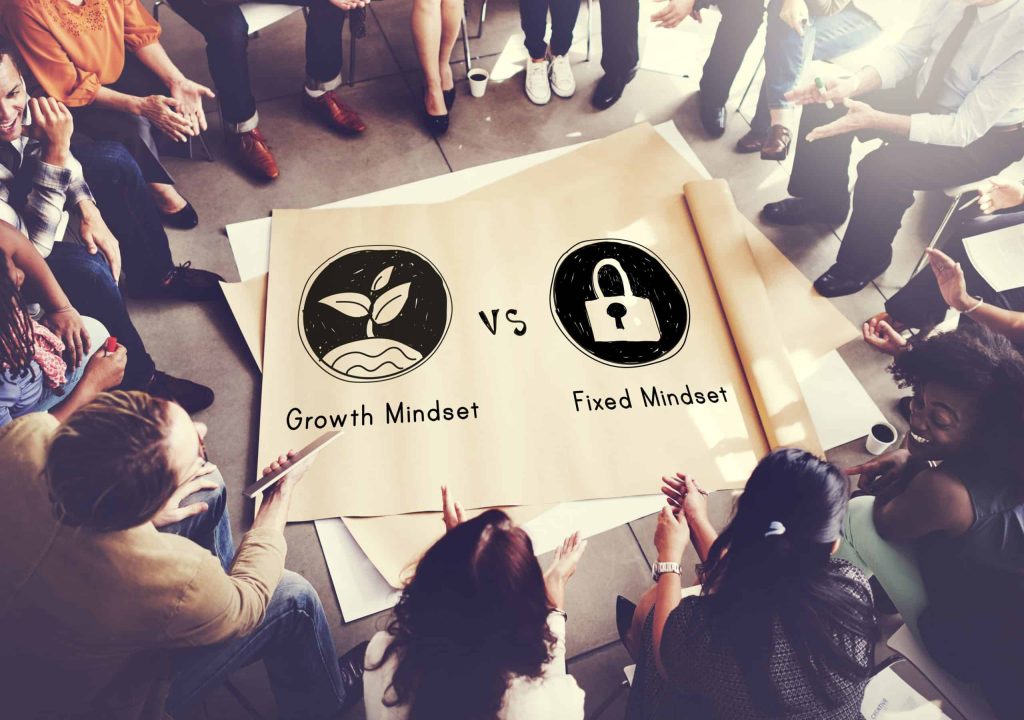How Reflective Journaling Can Help Nigerian Professionals Overcome Challenges and Foster a Growth Mindset

The Power of Reflection in Professional Growth
In an era defined by rapid changes and constant challenges, Nigerian professionals often find themselves at a crossroads. Factors such as economic instability, evolving workplace dynamics, and societal expectations can induce stress and hinder career growth. Yet, within these challenges lies the potential for profound personal and professional development. Embracing a growth mindset becomes not just advantageous but essential, and one compelling method to nurture this mindset is through reflective journaling.
Understanding Reflective Journaling
Reflective journaling is more than merely writing about daily occurrences; it is a deliberate exercise in self-exploration. Through this practice, individuals engage with their thoughts, feelings, and experiences on a deeper level. The core activities in reflective journaling enable individuals to:
- Process daily events and emotions: Writing allows professionals to articulate their thoughts, which helps clarify feelings and potential reactions.
- Identify patterns in behavior and thinking: By reviewing past entries, one can spot recurring themes, which can shed light on personal growth or areas needing attention.
- Set goals and evaluate progress: Journaling provides a structured way to track aspirations and achievements, making it easier to adjust plans as needed.
How Reflective Journaling Can Benefit Nigerian Professionals
The benefits of reflective journaling are particularly resonant for professionals navigating the complexities of the Nigerian job market. This practice empowers them to:
- Overcome workplace challenges: Reflective journaling enhances problem-solving skills by encouraging individuals to critically analyze their work experiences and derive constructive solutions.
- Enhance self-awareness and emotional intelligence: This practice cultivates an understanding of one’s emotions and reactions in various workplace scenarios, thus promoting better interpersonal relationships.
- Build resilience against stress and adversity: Writing about challenges allows professionals to acknowledge their difficulties while also strategizing how to face them effectively.
For instance, a Nigerian marketing manager facing pressure to deliver results on a tight budget might use journaling to explore not only the tactics that could be employed but also the emotional stress tied to these pressures. By documenting the experience, she can identify both successful strategies and emotional responses, ultimately forging a path towards greater resilience and adaptation.
Such reflective practices transform workplace trials into opportunities for growth and teach professionals to approach their careers with adaptability and clarity. As they navigate the intricacies of their roles, journaling surface as a beacon of insight in their journey toward success, emphasizing the importance of continual learning and self-improvement.

In conclusion, as the landscape of work continues to evolve in Nigeria, leveraging tools like reflective journaling can offer professionals the means to not only survive but thrive, turning adversities into stepping stones for future achievements.
RECOMMENDED: Check out this similar article
The Transformative Effects of Reflective Journaling
Reflective journaling serves as a powerful tool for self-discovery and growth, particularly for Nigerian professionals grappling with an array of career-related challenges. In a fast-paced work environment, where the pressure to excel can often lead to burnout, reflective journaling provides a sanctuary for introspection. This practice fosters a deeper understanding of oneself, catapulting individuals toward a growth mindset that is essential in today’s competitive landscape.
Harnessing Critical Thinking Through Reflection
Professional journeys often entail navigating through a maze of obstacles, be it tight deadlines, workplace politics, or challenging client demands. Reflective journaling encourages critical thinking by urging professionals to dissect their experiences. By examining their choices and actions, individuals can cultivate a more profound understanding of their decision-making processes.
- Analyze past decisions: Reflective journaling prompts individuals to revisit decisions made in challenging situations, enabling them to evaluate the effectiveness of those choices and learn from them.
- Identify strengths and weaknesses: By documenting responses to various challenges, professionals can highlight their strengths and pinpoint areas that require improvement.
- Develop creative solutions: Writing about challenges encourages creative thinking and opens the mind to alternative strategies that may not have been considered in the heat of the moment.
For instance, a software developer in Nigeria facing frequent project deadlines might leverage reflective journaling to assess their time management approaches. By reflecting on what strategies worked effectively and which didn’t, the developer can create a tailored plan for future projects, ultimately enhancing their productivity and reducing stress levels.
Fostering Emotional Resilience and Adaptability
In the dynamic Nigerian job market, the ability to adapt is paramount. Reflective journaling acts as a therapeutic outlet that helps professionals process their emotions. Such processing is vital not just for mental well-being, but also for developing a resilient mindset. When professionals take the time to write about their feelings regarding work-related stressors, they can:
- Normalize their experiences: Reflecting on emotional responses helps professionals feel less isolated, fostering a sense of community in shared workplace challenges.
- Improve emotional regulation: Writing about feelings can lead to better emotional management, preventing the rampant stress that leads to burnout.
- Encourage a proactive approach: By offering a platform to express feelings, journaling inspires professionals to take proactive measures toward mitigating stressors instead of allowing them to accumulate.
For example, a young teacher faced with classroom management issues might write about the frustrations and seek solutions that encompass both behavioral strategies and self-care activities. This reflection not only paves the way for better management techniques but also reinforces the teacher’s commitment to personal growth.
Ultimately, reflective journaling emerges as more than a mere writing exercise; it is a transformative practice that aids Nigerian professionals in addressing their challenges and nurturing a growth mindset. By incorporating reflective journaling into their routines, individuals can leverage their experiences to achieve better outcomes and foster lasting success throughout their careers.
Understanding the Impact of Reflective Journaling
Reflective journaling serves as a powerful tool for Nigerian professionals striving to overcome personal and professional challenges while nurturing a growth mindset. This practice encourages individuals to consciously reflect on their experiences, thoughts, and feelings, fostering greater self-awareness. By engaging in regular journaling sessions, individuals can identify patterns in their thinking, recognize their emotional responses, and develop actionable strategies to enhance performance.Moreover, reflective journaling allows professionals to process setbacks constructively. Instead of viewing challenges as insurmountable obstacles, they can reinterpret these experiences as valuable learning opportunities. This cognitive reframing leads to resilience, empowering them to adapt quickly in dynamic work environments.Another significant advantage lies in the enhanced clarity that comes from journaling. By putting thoughts into words, professionals can articulate their goals and aspirations more clearly, enabling them to be more strategic in their decision-making processes. The act of writing also serves as a release mechanism, allowing for emotional processing that boosts overall well-being.Incorporating reflective journaling into daily routines can significantly impact overall professional development. It not only paves the way for personal growth but also promotes a culture of continuous improvement, ultimately benefiting organizations as they cultivate more adaptable and innovative teams. Thus, understanding the principles of reflective journaling is the first step toward unlocking its transformative potential.
| Category | Description |
|---|---|
| Enhanced Self-Awareness | Reflective journaling promotes a deeper understanding of personal thoughts and behaviors. |
| Resilience Building | Journaling helps professionals view challenges as learning experiences, encouraging a resilient mindset. |
Integrating reflective journaling into a professional routine not only fosters individual growth but also enhances overall workplace culture, benefiting both employees and organizations. By embracing this practice, Nigerian professionals can look forward to a more fulfilling career trajectory filled with opportunities for growth and innovation.
SEE ALSO: Click here to read another article
Building a Culture of Continuous Learning
Beyond personal growth, reflective journaling plays a pivotal role in nurturing a culture of continuous learning within Nigerian workplaces. This is particularly important in an environment where the rapid advancement of technology and the need for innovative solutions can make staying relevant a daunting task for professionals across various sectors.
Enabling Knowledge Sharing and Community Building
Reflective journaling empowers professionals not only to learn from their experiences but also to share insights with their peers. By documenting challenges, successes, and the lessons learned, individuals can create resources that benefit their teams and organizations. This approach leads to:
- Collaborative problem-solving: When professionals share reflections during team meetings, they can troubleshoot challenges collectively, creating a robust support system that fosters innovative ideas.
- Enhanced mentorship opportunities: Journaling experiences can be shared with less experienced colleagues, providing them with insights that accelerate their professional growth.
- Creating a feedback culture: By encouraging open discussions about personal experiences documented in journals, organizations can cultivate an atmosphere where feedback is valued, and growth is prioritized.
An example of this can be seen in the burgeoning tech industry in Lagos, where software engineers and developers often convene to exchange insights gained through their reflective journaling practices. These collaboration sessions not only enhance individual learning but also drive collective innovation within their companies.
Shifting Towards a Solution-Oriented Mindset
Reflective journaling cultivates a solution-oriented mindset that is critical for success in a challenging work environment. As professionals document their thoughts and experiences, they become adept at focusing on solutions rather than obstacles. This mindset shift is vital for:
- Encouraging persistence: By documenting setbacks and subsequent recoveries, professionals build a narrative of resilience that motivates them to push through challenges.
- Instilling confidence: Regularly reflecting on victories, no matter how small, reinforces a personal belief in one’s abilities, fostering a greater sense of self-efficacy.
- Promoting goal-setting: Journaling encourages individuals to articulate their goals clearly, aligning their actions strategically to meet them and enhancing overall productivity.
For instance, a Nigerian entrepreneur facing funding difficulties might document their brainstorming sessions, leading to creative funding solutions such as crowd-funding and angel investors. By persistently focusing on solutions instead of problems, the entrepreneur positions themselves favorably for future success.
Enhancing Mindfulness and Work-Life Balance
The fast-paced nature of many Nigerian industries often leads to a neglect of self-care, which can severely impact performance. Reflective journaling promotes mindfulness, allowing professionals to step back and evaluate their work-life balance. Through this practice, individuals can:
- Identify burnout signals: Regular reflections can help individuals recognize early signs of burnout, leading them to take proactive measures before reaching a crisis point.
- Encourage personal fulfillment: Journaling about personal values, interests, and passions can aid in re-aligning one’s career path with personal fulfillment, positively impacting motivation.
- Facilitate stress management: By venting frustrations onto the page instead of in the workplace, professionals can alleviate stress and maintain healthier relationships with colleagues.
A marketing professional in Nigeria, for example, may use journaling to reflect on their workload and pinpoint stressors. By identifying these factors, the individual can develop coping strategies that ensure a more fulfilling and harmonious career.
ADDITIONAL INSIGHTS: Expand your understanding here
Conclusion
In a rapidly evolving landscape, reflective journaling emerges as a powerful tool for Nigerian professionals seeking to overcome challenges and cultivate a growth mindset. This practice not only promotes personal development but also fosters a collaborative environment where continuous learning is the norm. By embracing the art of self-reflection, professionals can navigate the complexities of their careers more effectively, transforming obstacles into opportunities for growth.
Through the documentation of experiences and insights, Nigerian professionals can engage in knowledge sharing, enhancing teamwork and mentorship. The collaborative spirit fueled by reflective journaling fosters a supportive ecosystem where individuals can learn from one another’s successes and setbacks. Additionally, the practice encourages a decisive shift towards a solution-oriented mindset, enabling professionals to tackle problems with creativity and resilience.
Moreover, reflective journaling fosters mindfulness and enhances work-life balance, allowing individuals to remain attuned to their well-being while pursuing their goals. By recognizing burnout signals and aligning their careers with personal fulfillment, professionals are positioned to sustain peak performance in high-pressure environments.
As organizations in Nigeria increasingly prioritize employee growth and well-being, reflective journaling stands out as a practical strategy. By integrating this practice into routine workflows, professionals can not only embrace challenges but also unlock their full potential. Ultimately, the journey of self-discovery through journaling could illuminate paths previously unimagined, leading to innovation and success in the Nigerian workforce.


